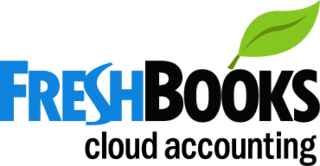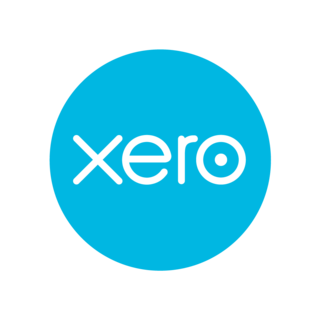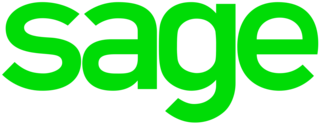7 Best Accounting Software for Small Business
If you're starting a small business, there are quite a few things you need to do to get it going. Choosing an accounting software solution should be near the top of your to-do list. By carefully accounting for every penny you have coming in and going out from the start, you can better monitor the health of your business and be well-prepared at tax time.
So, what is the best accounting software for small businesses? There are many options, each with varying features and pricing. The following quick reviews can help you evaluate seven options that made our top picks for the best accounting software for a small business. You'll also find a guide to walk you through choosing the right accounting solution based on your business needs and budget.
Our Top Picks for Accounting Software for Small Business
- Intuit QuickBooks — Best Overall
- FreshBooks — Best for Invoicing
- Zoho Books — Best for Integrations
- Xero — Best for Advanced Features
- Sage Business Cloud Accounting — Best for Basic Accounting
- Neat — Best for Freelancers and Micro Businesses
- Wave — Best for Smaller Budget
Best Accounting Software for Small Business Reviews
The accounting software picks that made the list were primarily evaluated based on their features, pricing plans and customer service. Since a small business doesn’t always stay small, we also considered each platform's scalability along with usability in terms of ease of use and multiple-user support.
Why we chose it: QuickBooks may be more costly than some other accounting solutions, but its extensive list of features, third-party integrations and customer support make it worth the additional cost.
- Integrates with many third-party applications
- Can use online or via the app
- Only supports one user with Basic plan
- Costs more than some other plans
With QuickBooks, it’s easy to upgrade your plan as your business grows. A notable advantage to using QuickBooks is that the two least-expensive plans are packed with features not typically found in other solutions' basic plans. That means you may not have to step up to a more expensive plan as quickly as you might on another platform.
If your business uses the services of several contractors or vendors, QuickBooks can help you manage the information you'll need to complete your 1099 requirements at tax time. QuickBooks can't make your tax payments for you, but if you use it in conjunction with a best tax prep software pick, your small business tax filing quick and easy.
QuickBooks provides customer support with every plan and has an extensive library of resources for learning how to use the platform's many features.
QuickBooks plan pricing:
- Self-Employed: $15/mo.
- Simple Start: $30/mo.
- Essentials: $55/mo.
- Plus: $85/mo.
- Advanced: $100/mo.
- Standout features
- Generate invoices from estimates, automatically track mileage with smartphone GPS, prepare and file 1099 tax forms
- Customer service
- Customer support with every plan
- Additional benefits
- 50% off for three months or 30-day free trial, third-party integrations, mobile app customizations
Why we chose it: FreshBooks is primarily an invoicing program with bookkeeping functionality. Its comprehensive invoicing customization makes it a stand-out for this category.
- Provides robust invoice customization and automation
- Offers affordable pricing with several discounts
- Has client caps on Lite and Plus plans
- Has limited ways to reach customer support
For an accounting solution that began as an invoicing program, FreshBooks has an impressive list of features, including a few not found too often together, such as a client self-service portal, double-entry accounting reports and recurring billing for client retainers. If you want robust invoicing customization and automation, FreshBooks will likely meet all of your invoicing needs and then some.
FreshBooks does limit the number of clients you can bill per month with the Lite and Plus plans. You’ll need the Premium plan for unlimited billing, but FreshBooks's premium plan is cheaper than most of the top-tier plans of other platforms and offers several discounts.
If you need support, you can reach out via chat. If your issue can't be resolved via chat, you can be connected to a customer service rep.
FreshBooks plan pricing:
- Lite: $15/mo. or $180/yr.
- Plus: $30/mo. or $360/yr.
- Premium: $55/mo. or $660/yr.
- Standout features
- Easily integrate with 16 apps, track timesheets and project expenses, automate payment reminders
- Customer service
- Initial support via chat and will connect you with a customer service rep if necessary
- Additional benefits
- Discount for annual plans and 60% off four months of monthly plans, 30-day free trial, offers several add-ons
Why we chose it: Zoho Books is an integrated accounting solution that allows you to easily connect to Zoho apps and other third-party solutions — from your payment processor to your e-commerce platform
- Integrates seamlessly with other software solutions
- Has many features not included with other solutions
- Number of features may be overwhelming to new users
- Charges a fee to add additional users
If you have a small or medium-sized business (SMB) that uses several different software solutions, such as Slack, Twilio and Office 365, you might want to consider an SMB accounting software solution with proven integration capabilities that can link the many software pieces of your business.
Zoho Book's list of features is long and may provide more functionality than your small business might need. However, Zoho Books may be your best accounting solution if you have a service-based business or already use other Zoho products and services.
With Zoho Book's six plans, one of which is free, you can gradually scale your accounting software features as you scale your business. Each plan has a revenue cap, and you'll have to move up to the next paid plan as your business revenue increases. For instance, you can stay on the free plan until you generate revenue greater than $50,000 per year.
You can only get email support with the free plan if you need customer support. However, all paid plans come with voice, email and chat support.
Zoho Books plan pricing:
- Free: $0/mo.
- Standard: $15/mo.
- Professional: $40/mo.
- Premium: $60/mo.
- Elite: $120/mo.
- Ultimate: $240/mo.
- Standout features
- Set up recurring billing and client retainers, provide your clients with a self-service portal, get paid with invoice check-out links
- Customer service
- Email, voice and chat support for all paid plans
- Additional benefits
- Offers several integrations, can add additional users, discounts for yearly plans, 14-day free trial
Why we chose it: Xero's basic plan is limited, but the top-tier plans provide many advanced features for a reasonable monthly price.
- Offers many educational resources for setup and use
- Provides a lot of functionality with the mid-tier plan
- Has invoice and billing limits with the Basic plan
- Has no live customer support
Xero was founded in New Zealand but is quickly gaining popularity in the U.S. It offers three monthly plans and an add-on payroll option. With the Early plan, you can only enter 20 invoices and five bills each month. Depending on your business, the Early plan might be too limiting.
If you opt for the Growing or Established plans, you get unlimited invoicing and bill entry. The Growing plan may offer enough functionality for many small businesses even as the business expands. However, the Established plan has some advanced features not found with too many other solutions, including employee expense claims management, project tracking and in-depth analytics.
Xero provides support for both the setup and use of the platform and offers several classes to help you learn more about the platform's many features. However, it doesn’t have live customer support, so you'll be limited to chat or email communication if you have problems or questions.
Xero plan pricing:
- Early: $12/mo.
- Growing: $34/mo.
- Established: $65/mo.
- Standout features
- Bulk reconcile transactions, easily capture bills and receipts, keep tabs on your short-term cash flow
- Customer service
- Email support for setup and use
- Additional benefits
- Payroll add-on, 30-day free trial
Why we chose it: Sage's basic plan doesn’t provide a lot of bells and whistles, but it is affordable and offers several ways to easily access its customer support, as well as many how-to resources to get you up and running on the platform.
- No credit card requirement for 30-day free trial
- Exceptional customer support
- Few features compared to other packages
- Paid add-ons needed to scale functionality
Sage Business Cloud Accounting is a cloud-based accounting software for small business with two plan options. The Sage Accounting plan supports unlimited users who can access the platform from anywhere for only $25 per month. The Sage Accounting Start plan only supports one user and may be better for solopreneurs.
If you want to scale Sage as your business grows, you may need to pay for some of the many available add-ons, including payroll, inventory, reporting and more.
Sage provides more customer support options — phone, email or online chat — and knowledge resources than any other of the featured accounting solutions. Sage also provides instructor-led courses, webinars and drop-in Q&A sessions and hosts an online community to ask questions and solve problems.
Sage plan pricing:
- Sage Accounting Start: $10/mo.
- Sage Accounting :$25/mo.
- Standout features
- Get cash flow forecasts, reconcile bank transactions automatically, manage purchase invoices
- Customer service
- Exceptional support and educational resources
- Additional benefits
- 70% off of six months of Sage Accounting plan, 30-day free trial, offers several add-ons
Why we chose it: Users report that Neat is easy to use, freeing up time spent on bookkeeping — time you can use to generate more revenue — making it our top pick for best accounting software for freelancers.
- Offers an affordable yearly customer support plan
- Has a document search feature
- Includes invoicing and reporting as an add-on
- Does not offer a monthly payment plan
Neat is unique in that it only offers one plan, which must be paid in full on a yearly basis. It doesn’t have a monthly payment plan. Further, it may lack some necessary functionality if you don't also get the Automated Insight add-on for another $150 per year. This add-on includes much of the platform's invoicing and reporting features.
Neat's base plan comes with unlimited email and chat support and access to its help center knowledge base. If you want unlimited phone support as well, you'll need to purchase the VIP Service for an additional $50 per year, and you can schedule one-on-one training. It could be $50 well spent.
Paying annually for all three components of Neat averages about $33 per month, which is less costly than some other monthly plans from other providers.
Neat plan pricing:
$200/yr.
- Standout features
- Get unlimited file storage, use mobile app to pair receipts with expenses, schedule bill payments
- Customer service
- Unlimited chat and email support, phone support only available as paid add-on
- Additional benefits
- 14-day free trial, VIP Service for $50/yr. and Automated Insights for $150/yr. as add-ons
Why we chose it: Wave's Invoicing and Accounting plans are free, and you can sign up for both. Accounting software doesn't get much more affordable for small businesses with a small budget.
- Offers three free plans
- Provides access to all features online or via the app
- Provides self-service customer support
- Charges per transaction fees for payment processing
If you're a small business owner just starting out, Wave's free plans may cover all your accounting and invoicing needs. The Invoicing plan provides customized invoicing, the automation of past-due reminders and the ability to accept payments directly. However, Wave charges per-transaction fees for payment processing.
If you sign up for the free Accounting plan, you get unlimited income and expense tracking, reporting and unlimited bank and credit card connections. You can add Wave's paid payroll service if needed as your business grows.
Wave provides self-service customer support through the Wave Help Center and its chatbot for those who only use Wave's free products. If you use any of Wave's paid services, it does have additional customer support options.
Wave plan pricing:
- Invoicing: $0/mo.
- Accounting: $0/mo.
- Banking: $0/mo.
- Standout features
- Get free banking with built-in bookkeeping, set up recurring billing, generate real time business health reports
- Customer service
- Self-service customer support for free plans
- Additional benefits
- Paid payroll and bookkeeping support add-on plans
Other Small Business Accounting Software We Considered
We researched several accounting software solutions to determine the best for each category. The following solutions don't have features surpassing the top seven and therefore didn't make the cut for best small business accounting software. However, they might be worth considering depending on your business’ size and budget.
Kashoo
If you want a straightforward small business accounting software solution, Kashoo claims to be the world's simplest accounting software for "truly small" businesses. You can use its invoicing plan for free and its accounting plan for only $20 per month.
- Offers a free plan that just tracks income
- Has an easy-to-use interface
- Does not provide document management functionality
- Only allows multiple users with the advanced accounting plan
ZipBooks
ZipBooks is an easy accounting software for a small business just getting started. It has a free plan that provides basic invoicing, vendor and client management and digital payment processing through PayPal or Square. For $15 per month, you can automate much of your invoicing.
- Provides business insights based on your data
- Considered easy to learn
- Offers fewer features per tier than many other solutions
- Has limited reporting functionality
Lendio
Lendio lacks in accounts receivable and payable functionality and may serve best as a micro business accounting software solution or one for freelancers. However, Lendio has a free plan with payment processing functionality for a reasonable per-transaction fee.
- Supports quotes and estimates
- Receives excellent customer service ratings
- Some features not supported on the mobile app
- Lacks some accounting features of other platforms
Best Accounting Software for Small Business Guide
You've likely thoroughly researched how to start a small business and the steps you need to take if you want to find success. If you're a new small business owner or have never had a need to use an accounting solution, you might find the many available plans and features overwhelming. This quick guide can give you a better understanding of what accounting software can provide and what you should look for in an accounting solution.
What is accounting software?
At its most basic, accounting software are computer programs that allow you to manage your business's income and expenses. Most of today's software packages go well beyond general ledger entries, however. Many let you to perform such accounting functions as paying employees, billing clients, tracking inventory and even paying the utilities, all with one software system.
How does accounting software work?
There are several types of accounting software, from simple desktop spreadsheet-based programs to feature-rich cloud-based platforms. Most let you link your business bank accounts and credit cards to the software and import your banking transactions rather than perform manual data entry.
You can typically perform such tasks as categorizing expenses and generating invoices and reports with little effort. Accounting software enables you to automate much of the accounting process, so you have more time to focus on other aspects of your business.
How to choose an accounting tool
While it’s possibleto find free basic invoicing software and bookkeeping apps to help you manage your business finances, these free small business tools likely won't scale to meet your accounting needs as your business grows. They also won't have much of the time-saving automation functionality that most accounting software has.
Choosing an accounting solution that will cover your accounting needs both now and later will go a long way in helping you keep your business finances on track and save you time that could be better spent growing your business.
Accounting software solutions vary significantly in pricing and features. Sorting through and comparing the many options can seem daunting. Focusing on the following criteria can help make the process easier.
1. Calculate your budget and look at pricing
First, determine how much you can afford to spend each month on an accounting solution. As you consider plans and pricing, don't discount a software solution on price alone. Spending a little more money might provide tools that can save you a lot of time.
2. What’s your number of total users?
Many basic accounting plans only allow for one or two users with their own unique login. However, today many small businesses use collaborative accounting with two or more people working collectively, often from different locations, to cover the business's accounting needs.
Consider your needs carefully if you have a bookkeeper, virtual assistant or accountant that will need access. You'll often need at least a mid-tier plan to support multiple users.
3. Do you prefer desktop vs cloud-based?
A collaborative accounting system is typically cloud-based. Cloud-based accounting software is accessed over the internet, so users can access it without sitting at one specific computer terminal. With most cloud-based software, you can access it using a computer or a mobile app almost anywhere in the world. Software installed directly on your computer that can only be accessed using that one computer is considered a desktop solution. If you're considering desktop accounting software for your small business, keep in mind that it may lack some of the features that cloud-based solutions make possible.
You'll need a cloud-based solution if you have remote workers or an accountant who needs access to your accounting software. Most online accounting software for small businesses requires a monthly or annual subscription. If you or your staff only access software on-site, you can sometimes save money by purchasing a desktop solution.
4. Think about scalability
Whether you're a small business owner or have what's considered a micro-business (less than ten employees, according to the Small Business Institute), your business will grow, and you want an accounting solution that can easily accommodate your growing business.
Even freelancers should consider scalability as they research accounting software options. Basic plans for some software solutions have limitations, such as the number of invoices you can create. Once your business growth requires additional accounting features or a higher invoicing cap, you may want to avoid the need to switch to different accounting software.
5. Test out the user interface
Choose a solution with an interface that allows for easy data entry and retrieval. Accounting can be challenging enough without continually getting lost in a confusing user interface. You should be able to easily find where to input data or view a particular report. If the software supports an app, consider both its desktop and mobile interfaces.
6. Consider ease of use
Most software has a learning curve, but it shouldn't be so complicated that you need to search through the help system each time you try to use it. Most accounting platforms allow you to view a demo or try the software for free for a limited time so you can get a feel for its ease of use. Some also provide free training or have a knowledge library for when you do need help.
7. Look into its security features
You'll be storing sensitive business data and maybe even client information within your accounting software, so it must be secure. Consider a solution that not only encrypts your data but backs it up, too.
8. How much customer service and support is there?
As with any software, you may have questions and need occasional technical support. Before committing to an accounting solution, find out how and when you can contact customer support and perhaps reach out with some questions to determine how responsive they are.
Key Features of Small Business Accounting Solutions
Every accounting solution will have different features, but the following are common to most small business accounting solutions.
Accounts receivable and accounts payable management
You can get stand-alone accounts payable software for a small business just for expense management. There are also apps designed specifically for managing accounts receivable for a small business that generate and track customer invoicing.
However, if these tools can't be integrated into one system, you'll likely be stuck with a somewhat manual accounting process. A good accounting solution has functionality for both accounts payable and receivable, or allows for integrating such functionality.
Financial reporting and forecasting
Data is only useful if you can view or analyze it, which is why you want an accounting solution with reporting functionality. Most basic accounting software plans provide basic pre-made reports. Upper-tier plans may support report customization to meet any business's needs and can even use your business data to forecast short-term cash flow outlook, inventory shortages and more.
Inventory management
Inventory management is often a premium software feature. It allows you to set low-inventory alerts, quickly see which products are most popular, create purchase orders and more. Businesses that use third-party e-commerce software can often integrate their online storefront with their accounting software for inventory management.
Financial document and invoice creation
With many accounting solutions, you can easily generate most of your essential financial documentation, such as balance sheets, income statements and invoices. Invoices are often customizable so you can include everything from the client's information to the services or products received.
Automated reminders
Keeping tabs on unpaid invoices doesn’t have to be a manual process with most accounting software. Many allow you to set automatic payment reminders for past due invoices and will automatically send late payment reminders for you.
Best Accounting Software for Small Business FAQ
What is ERP accounting software?
What is open-source accounting software?
How much does accounting software cost?
How do you set up accounting software?
How We Chose the Best Accounting Software for Small Business
We based our ranking methodology for our best accounting software picks based on the following categories.
User reviews and trustworthiness
We favored companies that receive mostly positive customer service reviews on third-party consumer review sites.
Accounting features
We considered how many accounting features each software platform offers and the functionality and customization aspect of each platform's features.
Integrations
Of the software platforms we researched, we chose those that provide easy integration with other third-party solutions that can enhance the software's functionality and usability.
Plan options
We evaluated plan options to determine which companies provide the most features for the best price.
Additional resources
We considered any additional resources and benefits a platform offers that sets it apart from other solutions.
Summary of Best Accounting Software for Small Business
- Intuit QuickBooks — Best Overall
- FreshBooks — Best for Invoicing
- Zoho Books — Best for Integrations
- Xero — Best for Advanced Features
- Sage Business Cloud Accounting — Best for Basic Accounting
- Neat — Best for Freelancers and Micro Businesses
- Wave — Best for Smaller Budget







